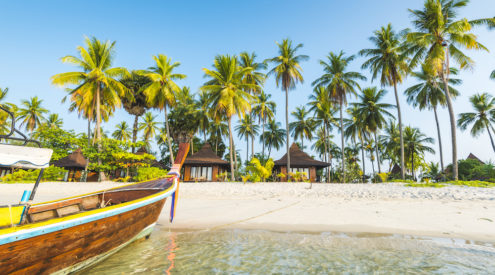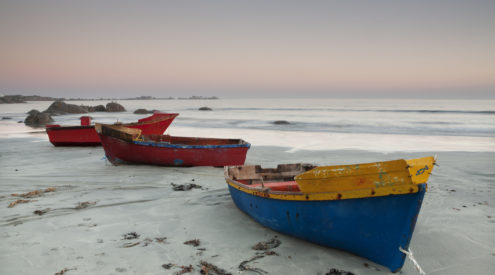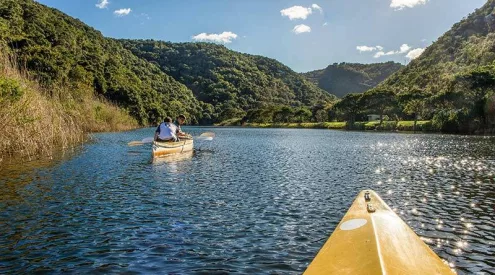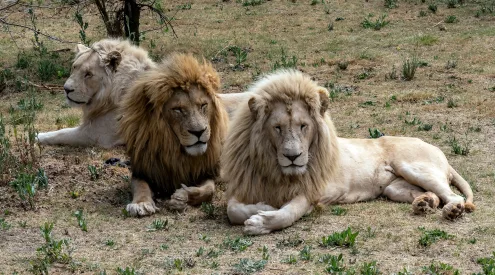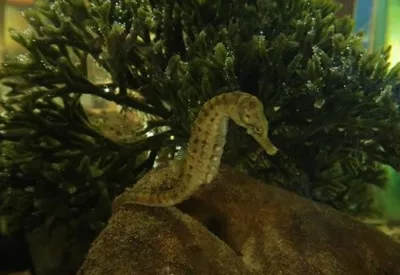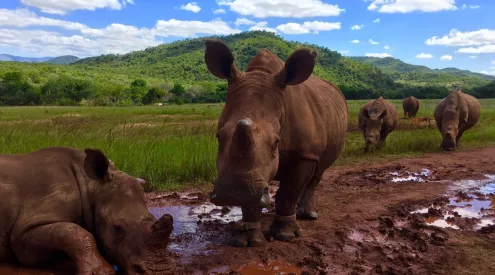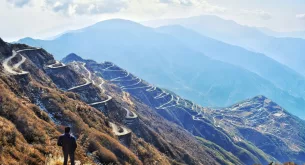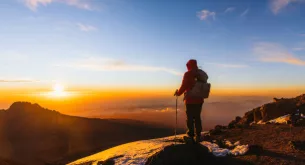The birth of an elephant is a spectacular occasion. Grandmothers,?aunts,? sisters,? and? cousins? crowd? around? the? new? arrival? and? its? dazed? mother, trumpeting and? stamping? and? waving ?their? trunks ?to?welcome ?the ?floppy ?baby? who has so recently arrived from out of the void, bursting? through? the? border? of? existence? to? take? its? place? in? an? unbroken? line? stretching? back ?to ?the ?dawn ?of ?life.
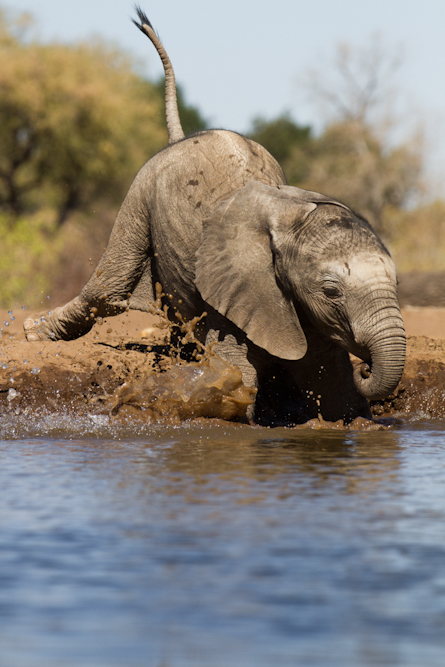
Elephant calf learning to use its trunk. Photo by Dylan Kotze
After? almost? two? years? in? the? womb? and? a? few? minutes? to? stretch? its? legs, the calf can begin to stumble? around.?But? its?trunk,? an? evolutionarily? unique inheritance of up to 150 000? muscles with the dexterity? to pick up a pin? and the strength to? uproot? a ?tree,? will?be ?a ?mystery ?to ?it ?at ?first,? with? little? apparent? use? except? to? sometimes? suck? upon? like? human? babies? do? their? thumbs.?Over ?time,? with ?practice? and ?guidance, ?it will find the potential? in? this? appendage? flailing? off? its? face? to? breathe,? drink, caress, thwack, probe, lift, haul, wrap,? spray, sense, blast, stroke, ?smell,? nudge, collect, bathe, toot, wave ?and use it for tasks that we’d require eyes, nose, hands and strong machinery?.
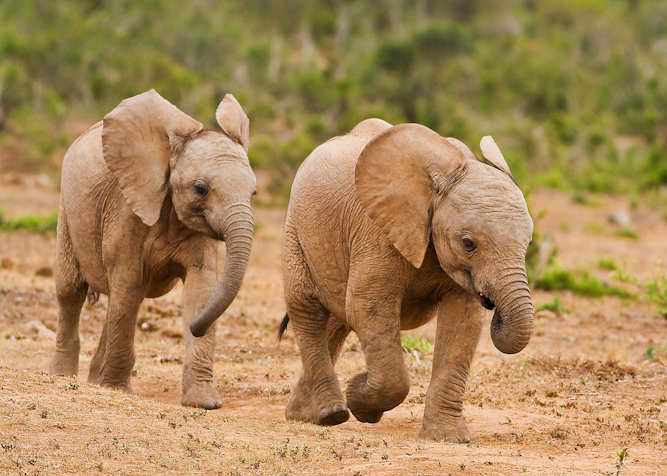
Young elephants in a playful mood in the Addo Elephant National Park. This reserve provides unsurpassed opportunities for photographing elephants. Photo by Elmar Venter
Elephants look amazing up close, but it’s their intelligence and gentle empathy that has fascinated us for centuries. They celebrate birth and mourn their dead, the only other creatures to do so. They have also been known to bury? dead? rhinos,? lions? and? humans.
If they’d been any ?uglier, ?more ?boring,? or ?less? gracious ?animal, they might have ?been? left? more? alone to? live out their lives ?in ?peace? and? freedom.?But? because? the? elephant? is so intriguing,? it has become the victim of our fascination embodied in our desire for ivory objects. As a result, the? outlook? for elephants today is grim. An average of around four are being poached for their ivory every hour. A century ago there were around four million elephants, today there are about 500 000 and the population is dropping fast. We can already imagine a time when none will be left. It would be a lonelier world. Ian Minchler puts this into (a rather harrowing) perspective.
‘Central and East Africa are in the midst of a poaching onslaught against their elephants – population counts and poaching records by both government and NGO agencies confirm this. Driven by organized crime syndicates in search of ivory, we also know that that the vast majority of this bounty ends up in the Far East. Amongst other factors, these illegal activities are facilitated by weak governance and corruption in the affected countries.
The big question however is how long before the poaching gangs turn their guns and machetes on the elephant herds of southern Africa? The region carries over 50% of the continents elephants, and to date these have not been impacted by the poaching. But given what has happened to rhino and the nature of organized crime, this scenario could very well change sooner rather than later.
And for many, this crisis is not only about the death tally – it also embraces the folly of allowing a trade in ivory. Despite what we have learnt from previous one-off sales through CITES, the pro-trade lobby remains strong, a factor that may very well be fueling the poaching.’
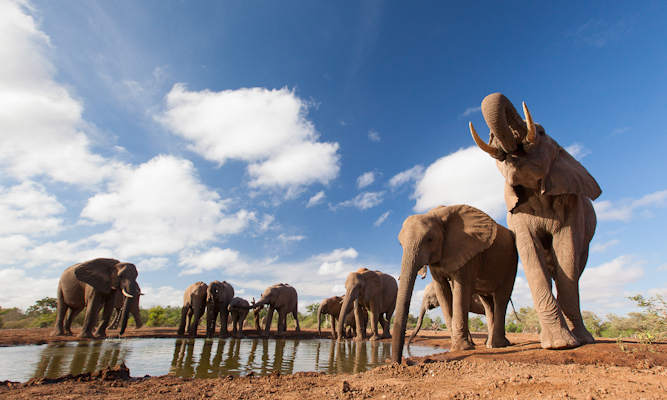
Around the waterhole. Photo by Isak Pretorius
Show your support for World Elephant Day
In an attempt to raise awareness of the elephants’ plight, August 12 has been declared World Elephant Day and people in many countries will be taking whatever action they can in defense of this great fellow creature.
Since it began more than two decades ago, Getaway has championed the wilderness and its many creatures. Elephants have been high on this list. This year, Getaway has joined Wilderness Safaris and Conservation Action Trust to celebrate the majesty of elephants by giving you the chance to share your best elephant images and stand a chance to win a four-night safari holiday in Zimbabwe.
To find out more (and to enter), click here.
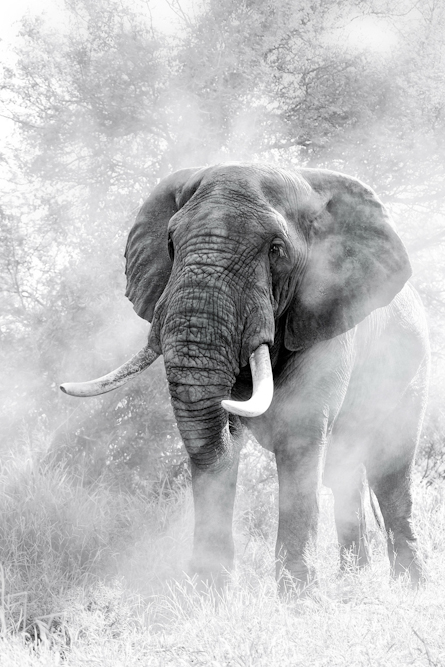
After a quick head shake, the dust swirled in the morning light before casting a shadow through the elephant. Photo by Ross Couper
‘There is mystery behind that masked gray visage, an ancient life force, delicate and mighty, awesome and enchanted, commanding the silence ordinarily reserved for mountain peaks, great fires, and the sea.’ –?Peter?Matthiessen,? The Tree Where Man Was Born



